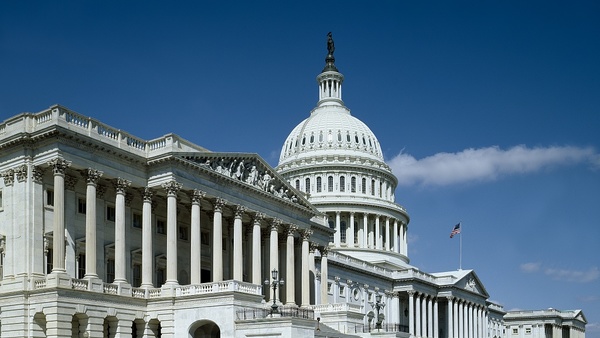
The House Financial Services Committee on Thursday approved Chairman Jeb Hensarling’s (R-Texas) Financial CHOICE Act to overhaul Dodd-Frank, after defeating Democratic amendments to the bill.
The committee approved the bill along party lines, 34-26. It now goes to the House floor for consideration.
Democrats proposed several amendments to the bill, including one to loosen the bill’s prohibition for the CFPB to issue rules banning mandatory arbitration. That amendment was not approved.
The panel also defeated a Democratic amendment that would have deleted a provision prohibiting the Labor Department from issuing the so-called Fiduciary Rule.
A fight over one controversial provision in the bill did not materialize. The bill, as written would repeal the Durbin Amendment, which placed a cap on interchange fees for debit cards.
Banks and credit unions have been lobbying hard for the repeal, while retailers contend that the cap saves consumers money and should be retained.
During the markup, Rep. Bruce Poliquin (R-Maine) said he opposed the repeal, but said that it was important that the bill be voted out of committee.
Hensarling assured Poliquin that he will try to ensure that the entire House be heard on the issue.
The House Rules Committee will have the final say on what amendments can be offered when the bill is debated.
As the bill heads to the House floor, it retains all of its provisions affecting credit unions.
Under the bill, the CFPB and the NCUA would be subject to the appropriations process. The legislation retains the single-director structure of the CFPB, but the director would have greatly diminished powers. The agency would be prohibited from issuing final rules banning mandator arbitration and payday lending.
The bill also would require agencies issuing rules to conduct cost-benefit analyses of the rules and would require major rules to be approved by Congress before they can take effect.
Hensarling said the legislation would provide much-need changes to Dodd-Frank.
“Our plan replaces Dodd-Frank’s growth-strangling regulations on small banks and credit unions with reforms that expand access to capital so small businesses on Main Street can grow and create jobs,” Hensarling said.
Credit union trade groups praised passage of the bill.
“During the markup, several committee members specifically cited the negative effects that overly broad rules stemming from the Consumer Financial Protection Bureau have had on credit unions and their members, so our message is getting out there,” said CUNA President/CEO Jim Nussle.
“Passage of the Financial CHOICE Act is an important step toward creating a regulatory environment where the nation’s credit unions can thrive,” said NAFCU President/CEO B. Dan Berger.
But consumer groups said the provision banning the CFPB from issuing rules banning arbitration and other provisions are unfair to consumers.
“Contrary to its title, H.R. 10 would deprive consumers and investors of any choice of their day in court when resolving serious disputes with powerful financial institutions and force them into a rigged system,” said Amanda Werner, arbitration campaign manager with Americans for Financial Reform and Public Citizen.
The House will have the votes to pass the CHOICE Act without Democratic votes. But any regulatory changes such as those contained in the CHOICE Act are likely to need a 60-vote majority in the Senate.
That means that any regulatory overhaul must attract Democrats as well as Republicans. Senate Banking Democrat Sen. Sherrod Brown (D-Ohio) has said he vehemently opposes Hensarling’s bill, as does Sen. Elizabeth Warren.
House Financial Services ranking Democrat Rep. Maxine Waters (D-Calif.) was blunt in her assessment of the bill’s chances in the Senate.
“The bill is rotten to the core and incredibly divisive,” she said. “It’s also dead on arrival in the Senate, and has no chance of becoming law.”
Brown and Banking Chairman Sen. Mike Crapo (R-Id.) have solicited comment on the type of regulatory reform stakeholders favor and are attempting to craft a bipartisan bill.
That means that credit unions cannot let up on pressure to institute changes to Dodd-Frank, said John McKechnie, senior partner at Total Spectrum and former chief federal lobbyist at CUNA.
“Passage in the Financial Services Committee was an important first step in what is going to be a much longer process,” he said. “No one I’ve talked to on either side of the aisle expects CHOICE to become law in its current form, but it’s critical for credit unions to stay engaged, stay active and stay positive about the overall concept of regulatory relief. “
The House is in recess next week and it was not immediately clear when the chamber will consider the bill. Crapo and Brown have not crafted their legislation yet.


